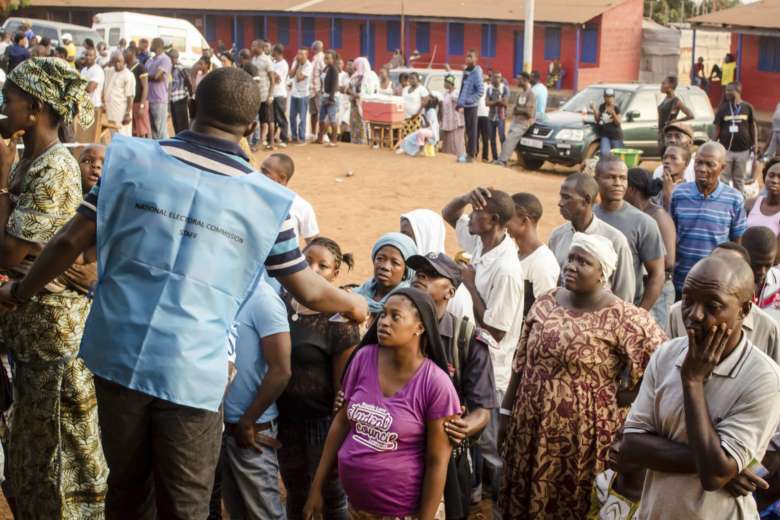By James Wright and Breeda Bennett-Jones
Staff Writer and Nation & World Editor
Sierra Leone elected its new president amidst rising tensions between the opposition and ruling parties on March 31, according to The New York Times. Julius Maada Bio, the leader of the opposition party, emerged victorious by a narrow margin.

Both election parties claimed victory immediately after the election, according to Reuters. Maada Bio’s party, the Sierra Leone People’s Party, was confident in its polling data.
“Ladies and gentlemen, we are confident that retired Brigadier Julius Maada Bio is the next president of Sierra Leone,” said Jacob Saffa, the SLPP’s election management chairman, according to Reuters.
The previously ruling All People’s Congress, led by candidate Samura Kamara, also claimed to have won the election, according to Reuters.
“Our comfortable lead is based on 83 percent of the vote count,” said APC spokesman Abdulai Bayraytay, according to Reuters.
Despite the APC’s confidence, Maada Bio was declared the winner on April 4 with 51.8 percent of votes, according to The New York Times. He was sworn in the same night after a campaign swept by public dispute and controversy.
"This is the dawn of a new era. The people of this great nation have voted to take a new direction," Maada Bio said in a news conference after being sworn-in, according to The New York Times. "We have only one country, Sierra Leone, and we are all one people."
In the first round of voting on March 7, the SLPP took 43.3 percent of the votes in the first round of voting, comparable to APC’s 42.7 percent, according to Reuters.
The SLPP has not held the presidency since 2007, according to The Washington Post. Maada Bio and Kamara are running to replace outgoing President Ernest Bai Karoma, who has served his allotted constitutional term limit, according to Reuters.
The first round of voting was mired with controversy, according to The Washington Post. A temporary injunction was issued after the APC filed a court challenge alleging irregularities in the voting process. The injunction delayed the election, inciting criticism from supporters of the SLPP.
The mostly peaceful election process is a relief for the 7 million inhabitants of the West African nation, who endured a bloody civil war in the 1990s, according to The New York Times. Maada Bio previously ruled the country as the head of a military junta in 1996, according to Reuters.
This year’s election is the fourth since the civil war ended in 2002. The last vote in 2012 was also predominantly peaceful, according to The Washington Post.
The winner of the election will face intense pressure from Sierra Leone’s failing economy, which plummeted as a result of low prices on its main export, iron ore, and the outbreak of Ebola in 2014, according to Reuters.
“We do not need any violence or confusion,” said Tanneh Kamara, a voter, according to The Washington Post. “All we need is to improve things for our nation so that we will be proud citizens of this, our country.”







